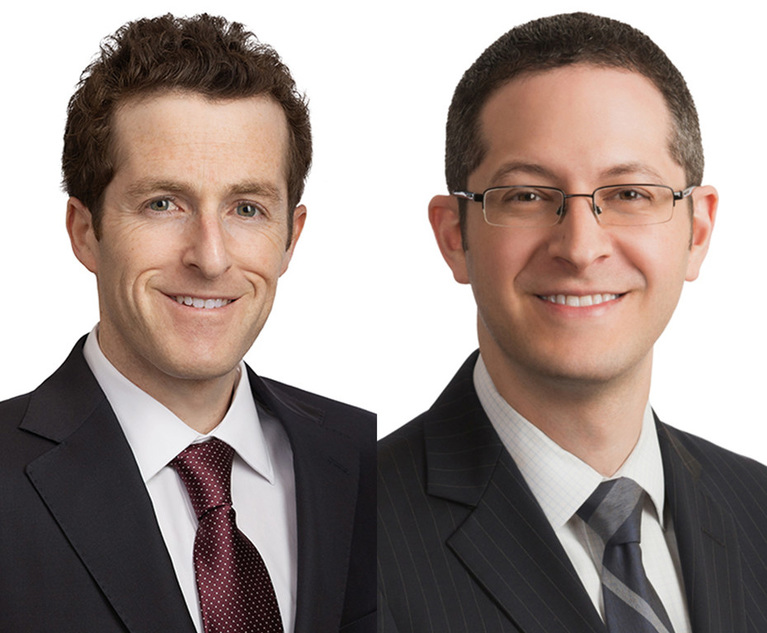Harrison M Brown

July 25, 2022 | The Legal Intelligencer
Is a Sweeping Expansion of Telemarketing Laws Coming?Enacted in 1991, the federal Telephone Consumer Protection Act (TCPA)—which regulates robo-dialing, text messages, and so-called "junk" faxes—has seen its notoriety rise and fall in the last 30 years. As the basis for nationwide class actions, TCPA liability has led to bet-the-company litigation and resulted in hundreds of millions of dollars in settlements over the last three decades.
By Jeffrey N. Rosenthal and Harrison M. Brown
6 minute read

October 14, 2020 | Legaltech News
Analyzing the CCPA's Impact on the Biometric Privacy LandscapeWhile lawmakers' efforts have been primarily focused on enacting targeted biometric privacy statutes modeled after the well-known Illinois BIPA, the CCPA demonstrates how legislators will also turn to other ways to impose requirements and restrictions over biometrics.
By Jeffrey N. Rosenthal, David J. Oberly & Harrison M. Brown, Blank Rome
8 minute read

January 26, 2016 | The Legal Intelligencer
Uncertainty Reigns Over Ownership of Social Media ContentWhen a social media account is created, who owns the resultant content? When a business cultivates Facebook "likes" in order to expand its marketing reach and effectiveness, who controls the outpouring of support for the company?
By Jeffrey N. Rosenthal and Harrison M. Brown
7 minute read

July 28, 2015 | The Legal Intelligencer
TCPA Ruling a Boon for Plaintiffs, Bust for Businesses and ConsumersThe Telephone Consumer Protection Act (TCPA) generally prohibits placing calls or sending text messages using an "automatic telephone dialing system" (ATDS) without the prior express consent of the called party. Given the high stakes in TCPA class actions ($500 to $1,500 per violation), litigants across the country have butted heads over the proper interpretation of key statutory provisions. This includes: whether the definition of an ATDS encompasses new calling technologies ubiquitous today, but that were not in existence when the TCPA was enacted in 1991; the extent to which intermediaries who play only a limited role in placing a call are liable; whether a business violates the act by calling a number for which it had consent but that was subsequently reassigned; how customers may revoke consent; and whether non-telemarketing calls are exempt.
By Jeffrey N. Rosenthal, Joshua Briones, Ana Tagvoryan and Harrison M. Brown
7 minute read

July 27, 2015 | The Legal Intelligencer
TCPA Ruling a Boon for Plaintiffs, Bust for Businesses and ConsumersThe Telephone Consumer Protection Act (TCPA) generally prohibits placing calls or sending text messages using an "automatic telephone dialing system" (ATDS) without the prior express consent of the called party. Given the high stakes in TCPA class actions ($500 to $1,500 per violation), litigants across the country have butted heads over the proper interpretation of key statutory provisions. This includes: whether the definition of an ATDS encompasses new calling technologies ubiquitous today, but that were not in existence when the TCPA was enacted in 1991; the extent to which intermediaries who play only a limited role in placing a call are liable; whether a business violates the act by calling a number for which it had consent but that was subsequently reassigned; how customers may revoke consent; and whether non-telemarketing calls are exempt.
By Jeffrey N. Rosenthal, Joshua Briones, Ana Tagvoryan and Harrison M. Brown
7 minute read
Trending Stories
- 1ArentFox Schiff Adds Global Complex Litigation Partner in Los Angeles
- 2Bittensor Hackers, Accused of Stealing Over $28 Million, Face Federal Lawsuit
- 3In Novel Oil and Gas Feud, 5th Circuit Gives Choice of Arbitration Venue
- 4Jury Seated in Glynn County Trial of Ex-Prosecutor Accused of Shielding Ahmaud Arbery's Killers
- 5Ex-Archegos CFO Gets 8-Year Prison Sentence for Fraud Scheme



